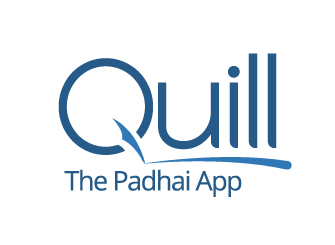Get all the latest information on Events,
Sales and Offers. Sign up for newsletter today.
Board Exams to Be Conducted Twice a Year: India’s New Curriculum Framework

Hey there, learning enthusiasts, let's zoom in on the exciting education makeover happening in India!
The landscape of Indian education is undergoing a significant transformation with the recent launch of the new curriculum framework by the Union education ministry on August 23, 2023.
Aligned with the National Education Policy 2020 (NEP), this framework brings a wave of changes that aim to reshape the way students learn, are assessed and prepare for their futures.
Let's dive into some of the key highlights that make this curriculum overhaul noteworthy.
1. Twice the Opportunity: Board Examinations
Hold onto your backpacks – the big news is biannual board exams! Yep, they've flipped the script from the once-a-year drill. Now, students have two cracks at these exams.
And the cherry on top? You can flaunt your best score. It's all about keeping the learning train chugging, focusing on understanding instead of robotic memorisation.
2. Shake-Up in Grading: Understanding and Skills Rule
The paradigm shift in assessment methodologies is another striking feature of the new curriculum. Forget about cramming for months and saying hello to true understanding and practical smarts.
No more exam pressure-cooker – now it's about really getting the hang of stuff and showing you can use it for real-world situations. This not only reduces the pressure associated with exam preparations but also encourages a deeper engagement with the subject matter. Say goodbye to endless mug sessions!
3. Picking Subjects: Flexibility in Classes 11 and 12
Old school's out and freedom's in! You get to pick whatever subjects you're into for classes 11 and 12. Gone are the days when subject choices were bound by traditional streams. The new framework offers you the freedom to choose subjects beyond the confines of streams, promoting interdisciplinary learning and allowing students to explore a wider range of interests. Additionally, the mandate to study at least one Indian language aligns with the goal of preserving and promoting native languages and cultures.
4. Books Go Hi-Tech: Sayonara Heavy Bags
The arrival of the 2024 academic session will bring with it a new set of textbooks. But what's more intriguing is the push to minimise the practice of covering textbooks in the classroom. This move holds the promise of optimising costs and reducing the burden of heavy bags, while encouraging a more interactive and engaging approach to learning. It's a step toward modernising the learning experience and integrating technology effectively.
5. Student Power: Exams on Demand
A significant stride in empowering both schools and students is the concept of on-demand exams. School boards are expected to develop the capacity to offer exams as per the needs and readiness of students. This shift challenges the conventional notion of rigid exam schedules and enables a more student-centric approach to assessment.
6. Quality Assurance in Exam Development
To ensure the credibility of the assessment process, the curriculum framework mandates that board exam test developers undergo a university-certified course. This move not only enhances the skillset of these developers but also raises the overall quality of exam creation, aligning it with academic standards.
So, in a nutshell, this new curriculum is all about giving education a modern twist. It's like going from old-school textbooks to interactive tech and from exam cramming to understanding and real-world skills. As we dive into this cool change, let's make sure we're all on board to make the most of this edgy journey.
High fives to teachers, parents, and students for rocking this transformation together!
Related Tags
Comments
Search
Recent Posts

Maharashtra Education 100 Day Action Plan: Marathi Language and State Anthem Compulsory
January 14, 2025
_6784f055e1d1c.jpg)
CBSE 2025 Class 10 and Class 12 Sample Papers Released: Download Here
January 13, 2025
_67824e0324746.jpg)
Maharashtra Board HSC Exam 2025 Hall Ticket Released; Read Official Notice Here
January 11, 2025
_67824eb9ba127.jpg)
JEE Main 2025 Session 1 City Intimation Slip Released: Check Step-By-Step Process
January 11, 2025
_6780cbf9d4605.jpg)
Important Announcements on CBSE Board Exams 2026–27, NEET-UG, and More
January 10, 2025
Recent Posts

Maharashtra Education 100 Day Action Plan: Marathi Language and State Anthem Compulsory
January 14, 2025
_6784f055e1d1c.jpg)
CBSE 2025 Class 10 and Class 12 Sample Papers Released: Download Here
January 13, 2025
_67824e0324746.jpg)
Maharashtra Board HSC Exam 2025 Hall Ticket Released; Read Official Notice Here
January 11, 2025
_67824eb9ba127.jpg)
JEE Main 2025 Session 1 City Intimation Slip Released: Check Step-By-Step Process
January 11, 2025
_6780cbf9d4605.jpg)
Important Announcements on CBSE Board Exams 2026–27, NEET-UG, and More
January 10, 2025




You need to log in before you can comment or reply